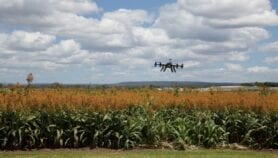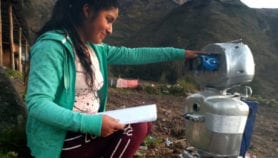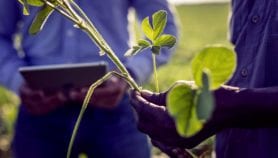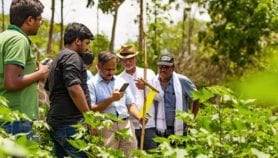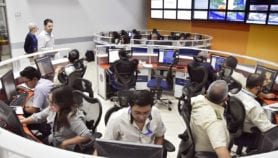By: Maina Waruru
Send to a friend
The details you provide on this page will not be used to send unsolicited email, and will not be sold to a 3rd party. See privacy policy.
[NAIROBI] The potential of mobile telephony to transform Africa will only be achieved if the development of other infrastructure keeps pace, says a study.
The number of mobile phone subscribers in Africa soared from 16 million in 2000 to 376 million in 2008, with 60 per cent of the population using them in 2008 compared with 10 per cent in 1999.
But, although mobile phones have had an enormous impact, Africans will not benefit from their full potential if governments neglect the development of other critical infrastructure such as roads, education and health facilities, according to the research, published in the summer issue of Journal of Economic Perspectives.
"We can’t and shouldn’t conclude that mobile phones are the silver bullet for African development — they are a tool that can and should be used but investment in public goods is still needed," said co-author Jenny Aker, a development economics researcher at Tufts University, United States.
The paper assessed data on mobile phone use across Africa, and looked at its impact on a variety of sectors, highlighting successful schemes such as money transfer in Kenya, literacy projects in Senegal and Niger and the agriculture pricing project in Ghana.
"The fact that mobile phone coverage and adoption has expanded so quickly shows that mobile phone infrastructure can be accomplished in the absence of other infrastructure — power, roads and landline — so really has the potential to go anywhere," said Aker.
But reaping the results of that infrastructure requires other developments — for example roads to transport produce to markets that a farmer has discovered by phone.
For Kilimo Salama — a farmer insurance plan in Kenya relying on phones to transmit data both to insurer and farmer — the problem has been that many farmers cannot afford phones, according to Rahab Karanja, the project’s field officer.
"Some farmers only own SIM cards, relying on borrowed handsets, making data transmission difficult at times while, to a lesser extent, network coverage for both phone and internet can be poor," Karanja told SciDev.Net.
Bill Maurer, director of the Institute of Money, Technology and Financial Inclusion at the University of California, Irvine, United States, cautioned that Africa was still in the early days of mobile money transfer and phone-based savings applications and that more research is needed for effective new services to reach more Africans.




